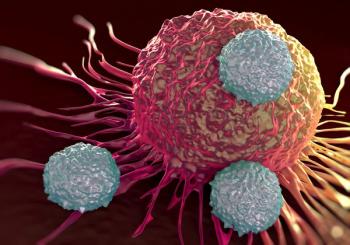
Data for ciltacabtagene autoleucel from CARTITUDE-1 show that use in the setting of heavily pretreated multiple myeloma bests standard-of-care treatments.

Your AI-Trained Oncology Knowledge Connection!


Data for ciltacabtagene autoleucel from CARTITUDE-1 show that use in the setting of heavily pretreated multiple myeloma bests standard-of-care treatments.

Treatment with lisocabtagene maraleucel resulted in long-lasting responses in patients with relapsed/refractory large B-cell lymphomas.
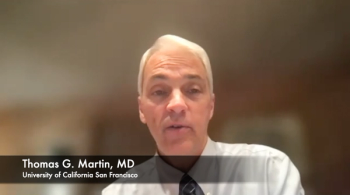
Thomas G. Martin, MD, spoke about the updated results of the CARTITUDE-1 study examining ciltacabtagene autoleucel in relapsed or refractory multiple myeloma.

Treatment with the CAR T-cell therapy tisagenlecleucel for relapsed or refractory diffuse large B-cell lymphoma or high-grade B-cell lymphoma was favorable in both the pivotal clinical trial and the real-world setting, according to new data made available during 2021 ASH.
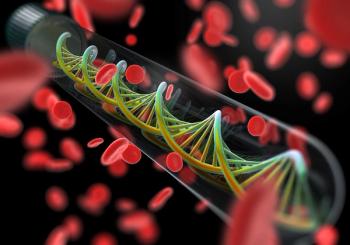
A population of patients with relapsed/refractory B-cell acute lymphoblastic leukemia appeared to have comparable real-world benefit from tisagenlecleucel compared with findings from the phase 2 ELIANA trial.
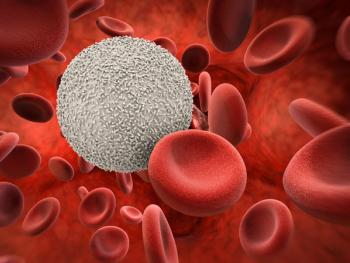
Depression and anxiety notably impact how patients with hematologic malignancies view clinical studies.
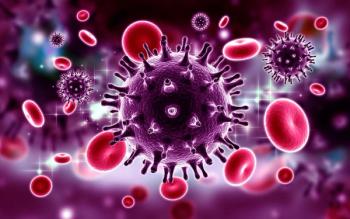
Investigators noted that patients with acute myeloid leukemia, acute lymphoblastic leukemia, and myelodysplastic syndrome who were diagnosed with COVID-19 were more likely to experience COVID-19 mortality vs non-cancer patients.

A strong antibody response was seen in patients with acute myeloid leukemia and myelodysplastic syndrome who received the mRNA COVID-19 vaccine.
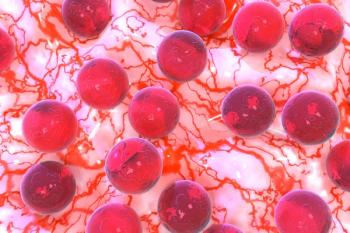
Patients with relapsed or refractory follicular lymphoma who had been given 2 or more prior lines of therapy and received tisagenlecleucel saw positive efficacy responses.
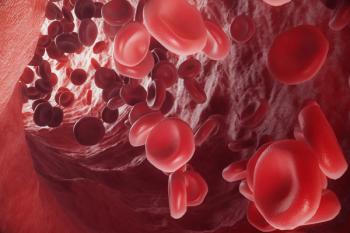
Orca-T improved efficacy outcomes over standard of care therapy for patients with serious hematologic malignancies.
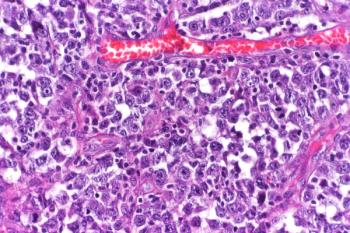
Second-line treatment with liscocabtagene maraleucel improved survival compared with the standard of care for patients with relapsed or refractory large B-cell lymphoma.
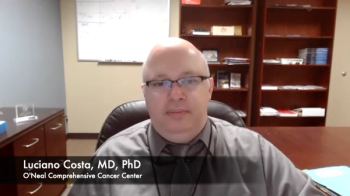
Luciano Costa, MD, PhD, spoke about which abstracts he wants to see most at ASH 2021.

Thomas G. Martin, MD, spoke about the previously reported results of the CARTITUDE-1 study in patients with relapsed or refractory myeloma ahead of the 2021 ASH Annual Meeting.

Thomas G. Martin, MD, spoke about the abstracts regarding B-cell maturation antigen–targeted treatments he’s excited to see presented at ASH 2021.
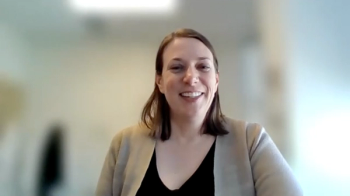
Jennifer A. Woyach, MD, spoke about which abstracts she’s most excited to see presented at the 2021 American Society of Hematology Annual Meeting.
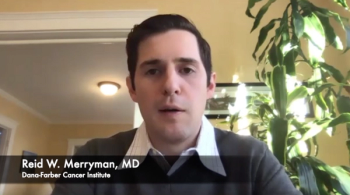
Expert details the potential for a clinical trial using minimal residual disease to guide therapy for patients with DLBCL.
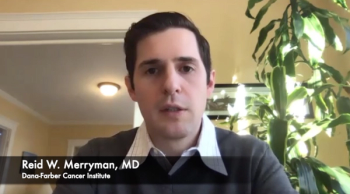
Merryman explains the value of evaluating separate transplant-related questions for patients with relapsed or refractory diffuse large B-cell lymphoma.
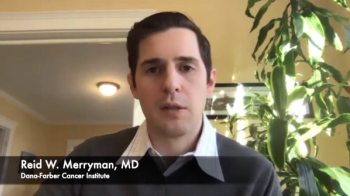
Thought leader detailed the findings from an oral presentation investigating patients with relapsed or refractory diffuse large B-cell lymphoma.
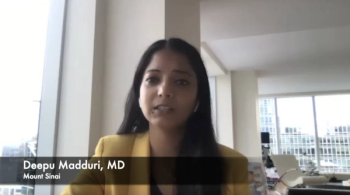
The phase 1b/2 trial evaluated a single, low-dose infusion of ciltacabtagene autoleucel (cilta-cel; JNJ-68284528) in heavily pretreated patients with relapsed or refractory multiple myeloma.
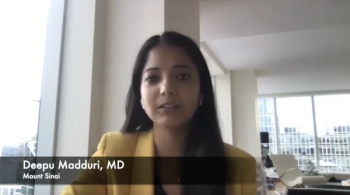
Based on findings from the trial of ciltacabtagene autoleucel, further investigation of the therapy in other populations of patients with multiple myeloma is already underway.
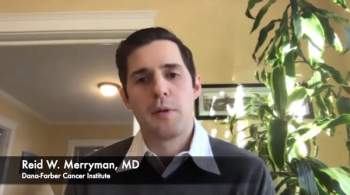
Merryman provided background for the study design investigating patients with relapsed or refractory diffuse large B-cell lymphoma.
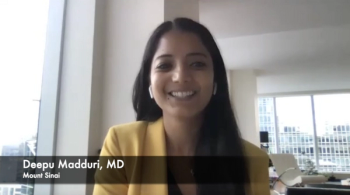
The goal of the CARTITUDE-1 study was to evaluate the use of ciltacabtagene autoleucel (cilta-cel; JNJ-68284528) chimeric antigen receptor T-cell therapy in heavily pretreated patients with relapsed or refractory multiple myeloma.
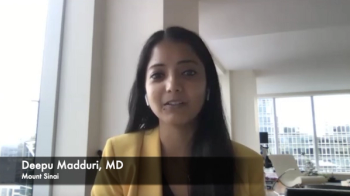
The study was designed to evaluate the use of ciltacabtagene autoleucel in patients with relapsed or refractory multiple myeloma in the United States.
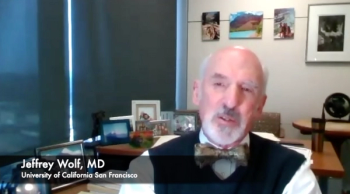
The interview features comments on the emergence of T-cell engagers for therapy in patients with multiple myeloma made during the 2020 ASH Meeting & Exposition.
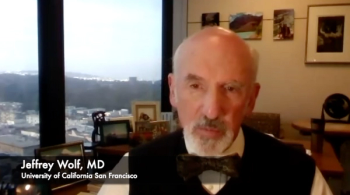
Wolf touched on the implications of results from a study investigating outcomes when making clinical decisions based on the MRD status of patients with multiple myeloma.
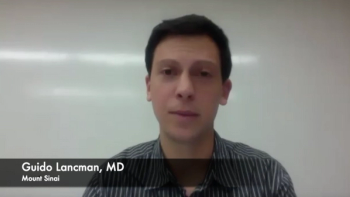
A study of the effect of intravenous immunoglobulin (IVIG) on infections in patients with multiple myeloma receiving daratumumab indicated that hypogammaglobulinemia was nearly universal during treatment, suggesting a role for IVIG.
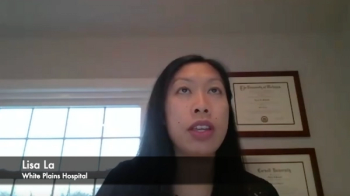
The director of clinical research in the Center for Cancer Care at White Plains Hospital explained the design of the study which evaluated diabetic versus nondiabetic patients enrolled in the CONNECT Multiple Myeloma Registry.
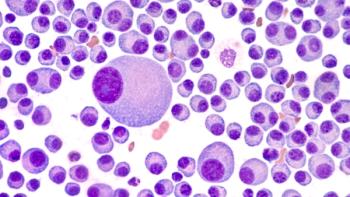
The expert from the Levine Cancer Institute discussed the findings from an updated analysis of the phase 2 GRIFFIN Trial for patients with newly diagnosed multiple myeloma.
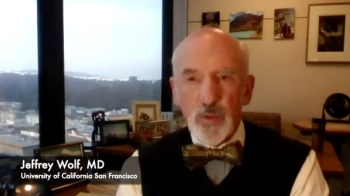
Wolf discussed the decisions to change therapy based on the MRD status of patients with multiple myeloma.
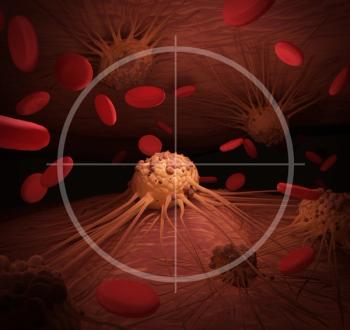
Patients with aggressive lymphomas had a sharp increase in quality of life from time of diagnosis until 1 year later.